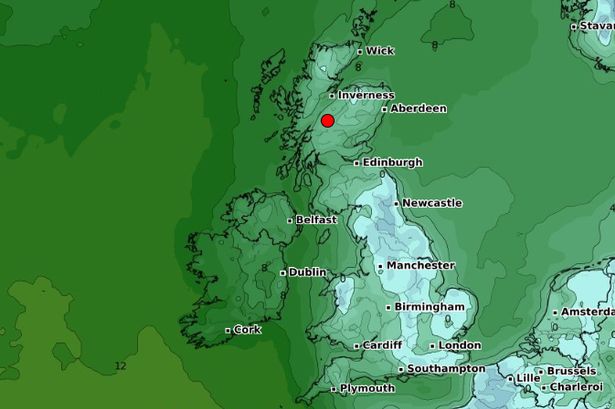The United Kingdom is bracing for a significant drop in temperatures this weekend, with forecasts predicting sub-zero conditions across England and Wales. This sudden shift to frigid weather follows closely on the heels of a disruptive snowfall that brought chaos to much of the country, impacting millions of residents. The impending cold snap raises concerns about potential travel disruptions, health risks, and increased pressure on energy resources as households grapple with the demand for heating.
The recent snowfall caused widespread disruption across the UK, blanketing roads and railways in thick layers of snow. Commuters faced significant delays and cancellations, with many left stranded as transportation networks struggled to cope with the adverse conditions. The heavy snow also led to school closures, impacting both students and working parents. Emergency services were stretched thin responding to a surge in accidents and incidents related to the treacherous conditions, including traffic collisions and slips and falls. The unexpected severity of the snowstorm highlighted the vulnerability of infrastructure to sudden weather changes and the challenges in maintaining essential services.
The anticipated plunge in temperatures this weekend poses further challenges. The Met Office has issued warnings for severe cold weather, advising residents to take precautions against the risks of hypothermia and other cold-related illnesses. The elderly, young children, and those with pre-existing health conditions are particularly vulnerable to the effects of extreme cold. Local authorities and community organizations are preparing to provide support to vulnerable individuals, including ensuring access to warm spaces and distributing essential supplies.
The combination of recent snow and the imminent deep freeze is expected to exacerbate existing pressures on the UK’s energy infrastructure. Increased demand for heating will put a strain on energy supplies, potentially leading to higher energy bills for consumers. The government is urging residents to take steps to conserve energy, such as insulating homes and reducing thermostat settings where possible. The situation underscores the ongoing debate about the UK’s energy security and the need for sustainable and resilient energy solutions.
Beyond the immediate human impact, the freezing temperatures are likely to have significant effects on the natural environment. Wildlife will face challenges finding food and shelter, and the sudden change in temperature can stress plant life. Farmers are particularly concerned about the potential damage to crops and livestock. The extended period of cold weather could also impact water supplies, with the risk of frozen pipes and potential disruptions to water treatment facilities.
Looking ahead, the UK is likely to experience ongoing fluctuations in weather patterns. The recent snow and impending cold snap underscore the increasing frequency and intensity of extreme weather events, which experts attribute to climate change. This raises concerns about the need for improved infrastructure resilience and more effective preparedness strategies to mitigate the impact of future weather extremes. The current situation serves as a stark reminder of the importance of investing in climate change adaptation and building a more sustainable future. While the immediate focus is on managing the challenges posed by the current cold weather event, the long-term implications for the UK’s climate resilience will require ongoing attention and investment. The interplay between extreme cold, recent snowfall, and the broader context of climate change necessitates a comprehensive and proactive approach to ensure the safety and well-being of the population and the environment.














